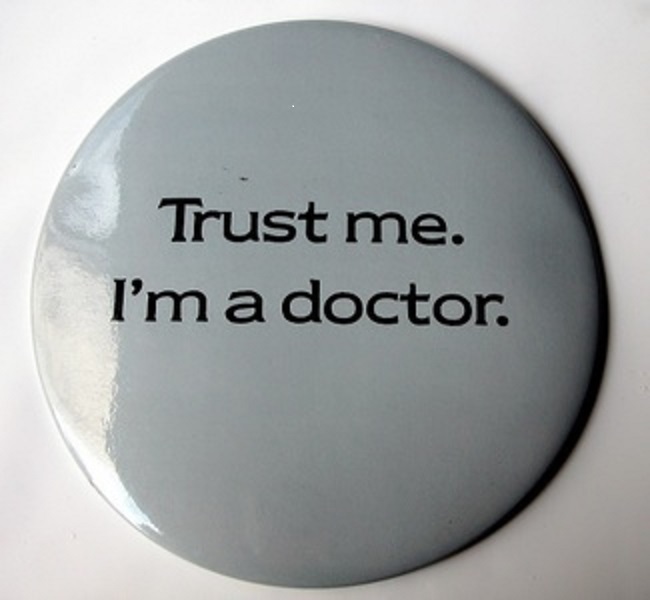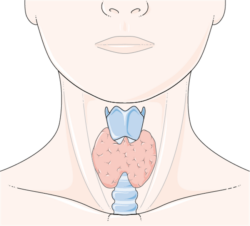Fortunately, the incident in this recount has had limited impact on my ability to relate to family members and continue in employment. Others might not be so lucky, so I am prompted to warn patients that this could happen to them. I was given a hysterectomy without my consent. In fact, I was given a hysterectomy against my explicit instructions to save my organs.
In the years leading up to my hysterectomy at 47, I had yet to enter menopause. I was generally very fit and healthy, but had experienced several ovarian cysts. These were aspirated under general anesthetic using keyhole surgery. The time came when an unusually large cyst formed on each ovary. I sought an opinion from a different gynecologist, a decision I later regretted. The cysts were the size of oranges and caused pain when I moved a great deal, which is why I sought treatment.
The new specialist insisted I needed bilateral surgery so the cysts could be completely removed. This meant a complete cut opening my abdomen instead of the keyhole surgery I had previously experienced. Instead of being back at work in ten days, it would mean a recovery time of four weeks. This daunted me. I am a special educator. People in my field are difficult to replace and I was concerned that my students wouldn’t generalize their behavior with a substitute teacher.
He Said, He Did Me a Favor: Hysterectomy without Consent
I agreed to the surgery. When given the consent papers to sign, I read them carefully. The operation I was consenting to was for bilateral surgery to remove large ovarian cysts. No where did the papers mention any other procedure. For some reason, I hesitated and told him that I never had any intention to have a hysterectomy. I stated that it was my intention to keep my organs. He barely acknowledged me, but he seemed to be paying attention.
My employer understood that I would be away for a month’s sick leave. I organised a month of work for my students, wrote detailed information about each student’s needs and felt confident they would receive proper care.
The day before my surgery, I painted a room for my mother-in-law. The cysts caused some discomfort but didn’t hamper my activity.
The surgeon saw me briefly before the operation. I restated my intention to keep my organs to him then. Before the anesthetic took effect, I looked at the other team members in the theater and again said, “Don’t remove my uterus and other organs.”
The pain upon waking was unbelievable. I couldn’t understand why it was excruciating. It wasn’t until the next morning that the surgeon told me that I’d had a hysterectomy. I assumed he’d found cancer. No, he just thought he’d do me a favor. I wouldn’t need those organs anyway as I’d ‘already gone through menopause’.
My husband was there the next morning at 7 when the surgeon arrived. I wanted a witness. Although I was still in great pain, I forced him to admit that there was nothing dangerously wrong with my organs, and if I’d been younger or on IVF he wouldn’t have removed them. He looked at my husband and said, “You had a tilted womb; I did YOU a favor!” I told him I never wanted to see him again. He was shocked. He also gave no serious consideration to a decline in sexual sensation or any future difficulties this might have on my health (bone strength, other abdominal organs and heart). I suggested that I would be glad to remove his organs as he had grey hair and probably was finished reproducing anyway. He found this response absurd as ‘males and females are so different.’
The surgeon did not see me as a whole person, someone who had a responsibility to their clients; he seemed to dismiss the impact such an extensive recovery time (and therefore, sick leave) would have on my vulnerable students.
Many months later after countless correspondences, emails and phone calls, the surgeon was brought before his peers in a meeting organised by the Health Care Complaints Commission. He was told not to do this again. To make certain others got the message, I submitted an article detailing the incident to the journal read by obstetricians and gynecologists in Australia and New Zealand. The article was published.
The hospital representative stated that the surgeon made this decision for me based on ramifications of cysts on my future health. The rep said that is what surgeons do. I think everyone was running for cover, afraid that I was going to sue.
Where I Stand Now
I can still do my work. I am still married, still love my family members and have good friends. I no longer trust doctors. It took years for me to not be filled with anger and resentment when I saw a white coat. I often still boil with anger when I remember my quality of life before the operation when my organs were intact.
There is nothing else I could have done. This is something that I’ve forced myself to believe. If stating my determination not to have my organs removed wasn’t a prompt to discuss things going ‘wrong’, what else could I have said? It seems that when a person is unconscious, the surgeon is in complete control of your body.
We Need Your Help
Hormones Matter needs funding now. Our research funding was cut recently and because of our commitment to independent health research and journalism, unbiased by commercial interests, we allow minimal advertising on the site. That means all funding must come from you, our readers. Don’t let Hormones Matter die.














All these bastards have to say is the surgery was ‘necessary’ or ‘indicated’ and they KNOW they will get away with these fraiudulent and criminal malpractices…
It will NEVER END IN THE EVIL, CORRUPT, GREEDY GYNECOLOGICAL INDUSTRY…
How I wish that somebody does the same things to those surgical criminals.. That is the only way to stop the barbaric, archaic surgical crimes against women…
One other thing – In the U.S. each gynecology resident is required to do AT LEAST 70 hysterectomies.
I’m sorry that you too were a victim of a sociopathic surgeon. Good for you for pressing for action by the Health Care Complaints Commission. It’s sickening that he only got a reprimand! But here in the U.S. that doesn’t even happen. Everyone just turns a blind eye. Kudos for getting published in a medical journal. I too am interested which one and how you achieved that. I doubt any patient here in the U.S. would be successful.
I Googled the name of the journal, wrote the address, emailed them as well as sent a letter. You would think that people who have to pay so much for their insurance would be more careful! Good luck…
Yes, sociopathic. Strange that men who have no understanding of women choose to ‘serve’ them!
How did you go about submitting your article to an journal read by obstetricians and gynecologists? After an anesthesia injury, a prevalent (but preventable) informed consent problem in that field has been made obvious to me. I’d love to submit something to some anesthesiology journals, but I’m not sure how to approach them. Did you just send it in and ask for it to be published? Did you have a contact at the publisher that advocated for your submission? Can you tell us which journal?
Additional information:
Quoting,
http://www.atyourcervixmovie.com/
Say you go in for surgery. At some teaching hospitals, a medical student might put your legs in stirrups and give you a pelvic exam–that you didn’t need and didn’t sign up for–while you’re unconscious. Now a new documentary is sounding the alarm on such unethical exams and alleging that they not only violate women, but teach young doctors that when it comes to patients, anything goes.
It’s a frightening reality, say the filmmakers of At Your Cervix, who are calling for stricter rules about what hospitals and doctors can get away with in the name of “education.” One medical student, seen in the documentary, even goes so far as to say she felt like she “violated” patients, after she learned that the unconscious women she performed pelvic exams on had not consented to them.
The filmmakers say that all of this ends up teaching new doctors the wrong approach to gynecological care–even more, it gives them an unnecessary sense, says one doctor who was interviewed for the film, “that you can do to your patients whatever you can get away with.”
That is why I went through the Health Care Complaints Committee, Paul. I still wake up thinking of this event. Years later, it has coloured my life, thought for my clients, I go out of my way to be a positive influence.
J
These arrogant, mean, and anti-Hippocratic Oath mostly conservative men (and women) in junkyard medicine use us as living cadavers. We have med students who don’t blink an eye in many med forums who think they have a right to do a cervix exam, without consent, on patients under general anesthesia. These arrogant souls run roughshod over parents wanting help with children with all manner of mental challenges.
Here, more insight into the early roots of how you could have a hysterectomy against your wishes:
https://www.menshealth.com/health/are-med-students-practicing-on-you
Quote:
In response to the furor over last year’s Philadelphia study–especially after newspaper reports in which several doctors admitted to unauthorized exams–most teaching hospitals are refusing to discuss the matter publicly, though many have released statements denying that it goes on within their walls.
A brave few, including the Harvard medical school and the University of Pennsylvania, have overhauled procedures and now seek specific consent from patients. The Harvard move came in part because of a grassroots campaign by its medical students.
Still, for now at least, the burden lies with patients to protect themselves. A statement released last summer by the AAMC (American Association of Medical Schools) reads, “When receiving care at a hospital, patients have a right to ask what procedures and treatments they will undergo as well as who will be involved in their care. If a patient is uncomfortable with the answer to either of these questions, the patient has the right to say ‘no.’ “